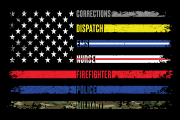When my father died several years ago, I received a number of sympathy cards from coworkers that suggested that I let my wonderful memories of my relationship with him from childhood and onward comfort me. As a grief counselor my thoughts immediately went to how interesting it is that people who knew nothing about my father or my childhood assumed that it would be a source of comfort. Having worked with many clients who were grieving the loss of a parent with whom they did not have a wonderful relationship, I knew that it can be a complicated and confusing process.
My initiation into conflicted grief was a brother and sister who came in together following the death of their mother. They described a woman who had been mean and nasty, as well as physically and verbally abusive to them up to and including with her last breath. I naively wondered at first why they would seek grief counseling. Shouldn’t they feel relief and freedom? They became teachers for me. Their grief was about the death of hope – hope that someday she would say “I love you” or “I’m proud of you.” The grief was about never having had a loving and nurturing mother in the first place. Sad indeed.
We often think about grief in terms of missing the person – longing for them and wondering how we will cope without them in our lives. But how do you grieve a parent who neglected or abused you or was mentally ill and unable to have any satisfying or loving interaction with you? What about a parent who was narcissistic or emotionally unavailable at all? Many spiritual traditions teach that we should honor our mothers and fathers, and there is a tendency for many people to put their parent(s) on a pedestal after their deaths. “Don’t speak ill of the dead.” One woman told me that her mother complained constantly about what a loser and other unprintable words her father was until the day he died. “Then he was suddenly promoted to sainthood overnight” she said with a puzzled and frustrated sigh.
Conflicted relationships with parents can be very difficult to grieve. A person might become flooded with painful memories, rage, helplessness or experience anxiety or emptiness. He or she might get lost in wondering about why the parent did or didn’t do things differently or why other people did not intervene or respond another way.
Some suggestions of what can be helpful if you or someone you know is grieving the death of a parent with whom there were difficulties are:
- Accept whatever feelings arise. Feelings are not right or wrong. Know that unfinished rage and sadness are both necessary parts of the grieving process. Anger can mobilize a person and keep them from sinking into deep depression and sadness can temper the anger.
- Express the feelings. Let go of any guilt about having ambivalent or negative feelings. Find someone who will honor your feelings and allow you to talk about the good, the bad and the ugly. It is ok to love someone and be angry at them or their behaviors.
- Learn more about who your parent was as a person not just in the role of parent. At The Refuge we say “wounded people wound people” and trauma is passed from one generation to another. What was his or her life like growing up? What were the cultural and ethnic influences? An excellent book that expands richly on this is Remembering Mom, Finding Myself by Patricia Commins.
- Acknowledge your parent’s strengths and other positive qualities as well as the negative ones.
- Write a therapeutic letter to your parent letting her/him know what you are thinking and feeling. At the Refuge we have a love letter format that acknowledges a wide range of feelings. Another good resource isThe Grief Recovery Handbook by John W. James and Russell Friedman. They use a relationship graph, questions, amends, forgiveness and letter writing to work through unresolved losses.
- Find people who can give you some of what you needed such as nurturing or mentoring. Allow yourself to take in the caring that many friends and others are willing to give.
- In time you may want to explore the meaning(s) you have given to events and relationships in your life. How do you want to tell your story? Are their gifts to be found? Wayne Mueller wrote a wonderful book called The Spiritual Gifts of a Painful Childhood.
Most importantly, be compassionate with yourself.



